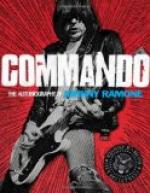For some time the guns of the enemy ceased firing, because, as I heard later on, Lieutenant Odendaal had shot down the gunners. When they made themselves heard again, they were more accurate in their aim; I most narrowly escaped the bombs. Four or five thundered around me in quick succession, as I fell and stooped and grasped the bridles of the rearing horses. Some of the horses pulled the bridles out of my hands and raced down the valley.
But the left wing of the enemy was surrounding us, and, like a swarm of birds that rise on the wing, the burghers fled back in among the tethered and the straying horses, and retreated as fast as they could. The enemy now bombarded Boesmanskop, so that the retreating burghers in the valley had a bad time of it with the bombs flying over their heads.
Many waggons of Boer families, fleeing for their lives, were pushing along the sides of the long mounds, and the enemy’s bombs burst in their midst more than once—perhaps accidentally, perhaps because they knew that ‘the Boer nation must be swept off the face of the earth.’
The women seemed to be in a panic. From all sides families came in carts and waggons—long rows of vehicles filled with poor, terror-stricken women and children; large herds of cattle were driven along by the Kaffir servants, but many of them fell into the enemy’s hands. The burghers did their best to make a stand in order to give the waggons a good start, but retreated in good order when they saw no chance of checking the enemy’s forward movement. Fortunately, a heavy shower fell in the afternoon and hindered the enemy in their advance, else many a waggon would have fallen into their hands.
It was no longer necessary for the burghers to resist for the sake of the waggons. The enemy had camped and left us, with the exception of the guard, to plod our way shamefacedly through the mud. Our ponies, with their quick, peculiar gait, soon caught up the heavily-laden waggons, and we supplied ourselves with mealies, flour, fowls, etc., that had been thrown overboard or left behind on a broken-down waggon. Such is the fortune of war, and the things were better in our hands than in those of the khakies.
When we rode up alongside the waggons, many a meeting took place between relatives and friends who had been parted for months. The women and girls drove the horses, and many of them walked with the Kaffirs in the mud next to the oxen. They did the work of the men in time of peace. Many of them had been delicately nurtured, in spite of the simplicity of their lives, and were not accustomed to the hard work. They were all Transvaal women, and wives and daughters of the burghers who had to look on helplessly at their sad flight. And, oh! the dear little heads of the children that peeped at us from out of the waggons! It was a cruel sight, and it moved us strangely.




